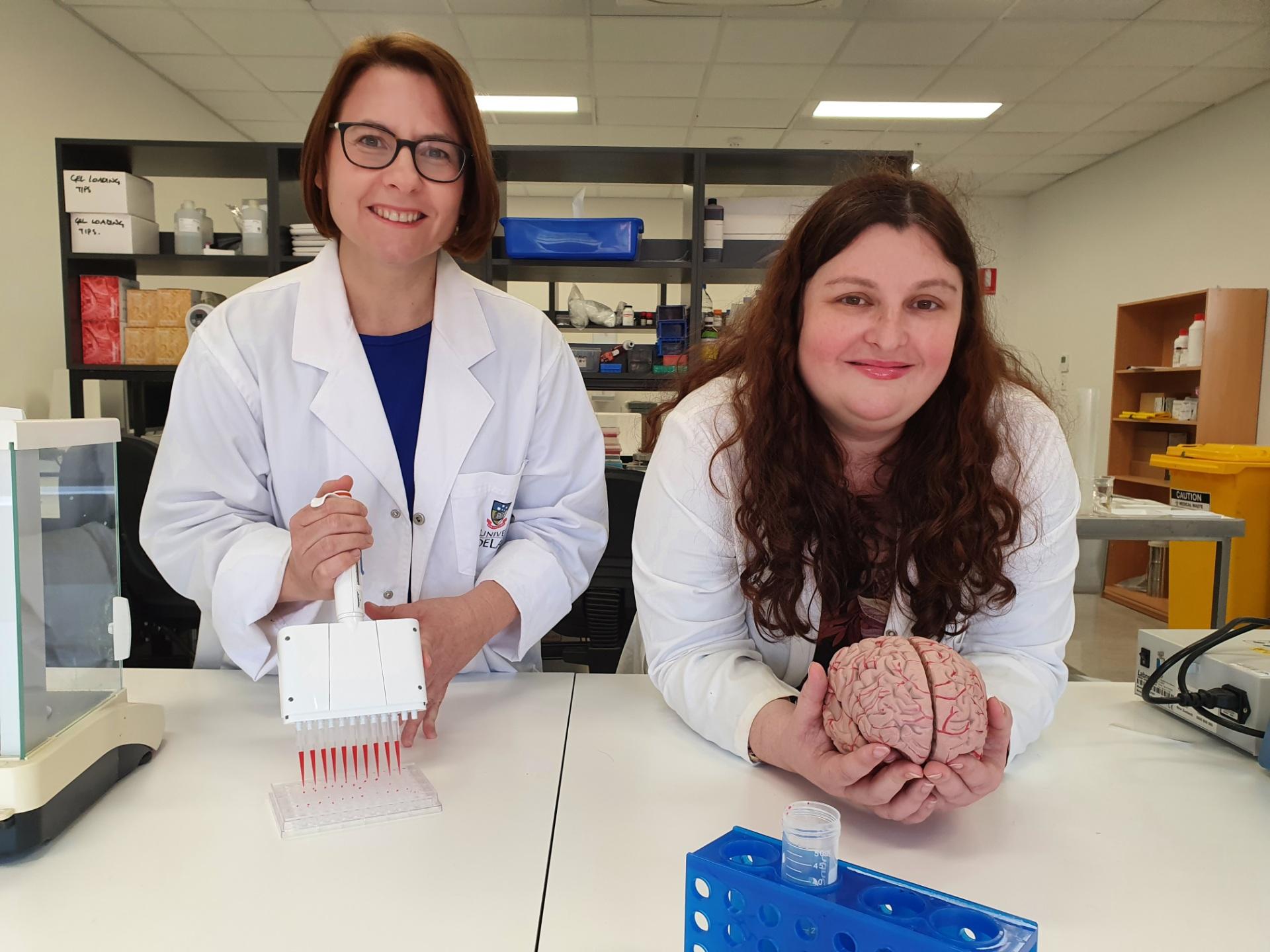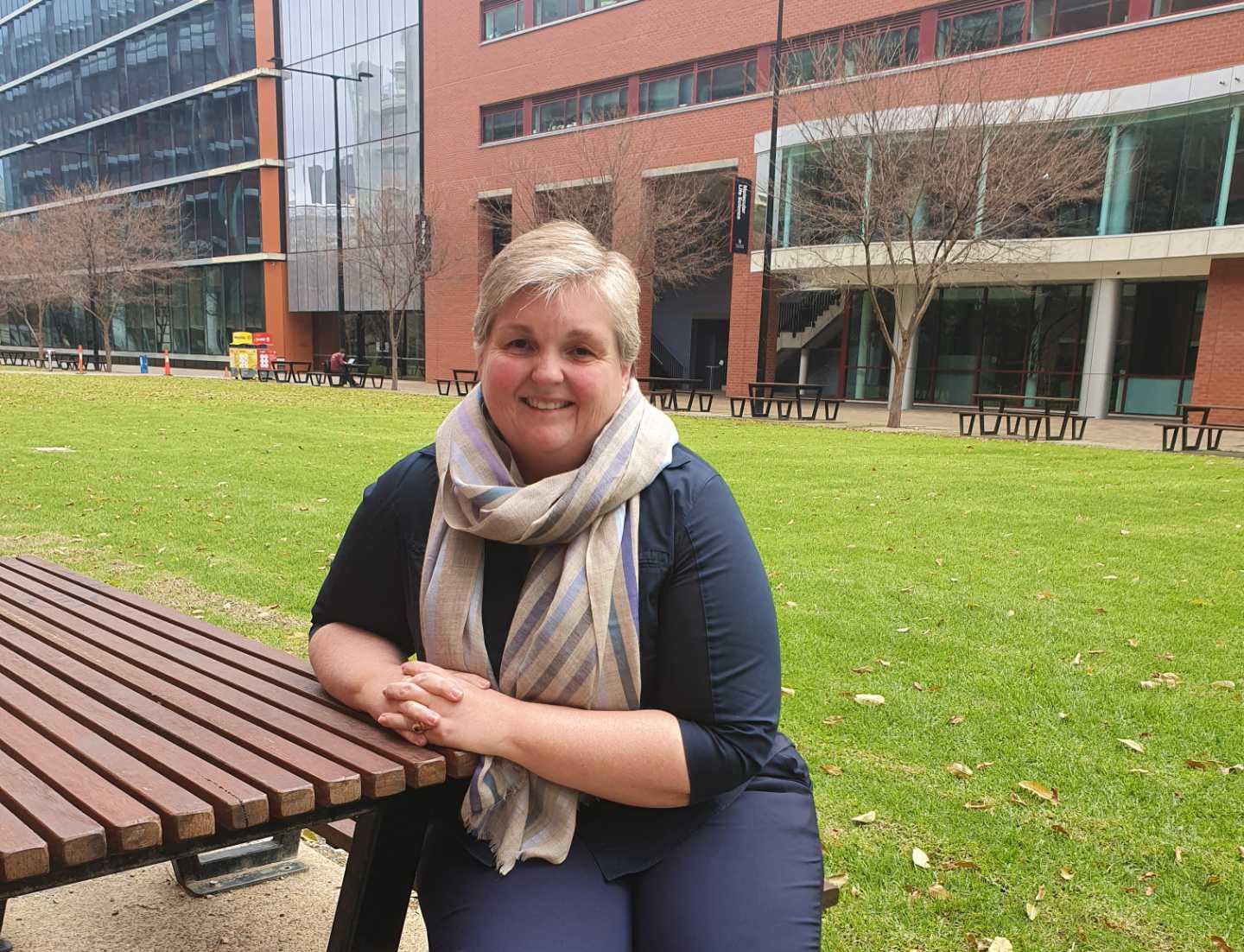$15 million for Adelaide-led medical research

Image of Associate Professor Leonie Heilbronn and Associate Professor Lyndsey Collins-Praino.
The University of Adelaide has been awarded more than $15 million in research grants from the Federal Government’s Medical Research Future Fund’s (MRFF) to support targeted research on new ways to address risk factors for chronic and complex diseases.
This represents the largest MRFF funding the University has attracted in a single year.
Five of the eight successful projects funded will be led by female medical researchers, demonstrating the strength of research talent in South Australia. The funding includes five million dollars for preventive and public health projects. This includes research with a focus on dietary and lifestyle interventions to improve health for women planning pregnancy, pregnant women and people in the population at risk of type 2 diabetes.
Researchers include Professor Jodie Dodd, obstetrician and maternal fetal medicine specialist; Associate Professor Leonie Heilbronn and Associate Professor Lyndsey Collins-Praino, all from the University of Adelaide.
Professor Jodie Dodd has been awarded $2,790,917 in funding for research to identify whether weight loss before conception improves pregnancy and birth outcomes for overweight or obese women who are planning pregnancy. Her research will also evaluate the health economic implications and social factors contributing to access and utilisation of the weight loss intervention.
“We believe the findings will provide evidence to support investment in health promotion prior to conception at a population level, inform health policies globally, and provide a strategy to tackle child obesity,” Professor Dodd said.
This study is seeking volunteers who are overweight, if you would like to participate email BeginBetter@adelaide.edu.au
Associate Professor Leonie Heilbronn has been awarded $1,012,420 to test whether time restricted eating is effective in improving glycaemic control and can be sustainable in humans longer term to reduce the risk of developing type 2 diabetes.
Two million Australians are at risk of developing type 2 diabetes, with this partly due to modern human lifestyles which are linked with eating for a prolonged period each day.
“Preliminary data shows that time restricted eating improves glucose tolerance by 36 per cent in people with obesity,” said Associate Professor Heilbronn.
This study is seeking volunteers to participate. People interested in taking part can email dietstudy@adelaide.edu.au
Associate Professor Lyndsey Collins-Praino has been awarded $1,987,160 to investigate the prediction of risk of long-term impairment and neurodegenerative disease development following traumatic brain injury.
“Right now, when an individual experiences a traumatic brain injury, we don't know what their long-term prognosis is. Will they recover fully or will they face lasting cognitive and motor impairment? Could they be at increased risk of developing neurodegenerative diseases, like Parkinson's or Alzheimer's?” said Associate Professor Collins-Praino.
"The MRFF funding will allow us to shed light on the brain mechanisms that may help to determine long-term outcomes, so we can have earlier, more effective intervention strategies.”
MRFF funding has also been awarded to:
- Associate Professor Lisa Smithers – awarded $987,208 under MRFF Preventative and Public Health for ‘A pragmatic randomised controlled trial to test whether incentives and carbon monoxide monitoring help pregnant women quit smoking’.
- Dr Devendra Hiwase – awarded $620,205 under the MRFF Investigator Grant – Clinician Researchers for ‘Understanding molecular pathogenesis of therapy related myeloid neoplasm’.
- Professor Michael Davies – $3,041,594 under the MRFF Accelerated Research – Congenital Heart Disease for ‘Maternally mediated factors and the risk of congenital heart defects in a whole of population cohort’.
- Professor Maria Makrides and in collaboration with SAHMRI – awarded $3,235,960 under MRFF Rare Cancers Rare Diseases & Unmet Need for ‘Neurological Disorders for Iodine supplementation in pregnancy to improve early childhood neurodevelopment: how much is enough?’
- Professor Tim Hughes and in collaboration with SAHMRI – awarded $1,619,122 under MRFF Rare Cancers Rare Diseases & Unmet Need for ‘Precision Medicine for Chronic Myelomonocytic Leukaemia: Phase II Trial Studying the Efficacy of Lenzilumab or High Dose Ascorbate plus Azacitidine Based on Molecular Profiling Compared to Risk-matched Historical Cohort’.
Professor Anton Middelberg, Deputy Vice-Chancellor (Research) said this was an exceptional result for South Australia and highlighted the important role the University of Adelaide plays in improving the health of Australians.
“This outcome is evidence of the University’s ability to attract and retain some of the brightest minds in research in Australia and across the globe.” said Professor Middelberg.
“The University has always enjoyed an outstanding reputation for research excellence and impact, and this funding will further facilitate research that will improve the health and wellbeing of current and future populations.”
“The University’s Virtual Open Day Sunday 16 August, is a perfect opportunity for students interested in science and medicine to find out where the future jobs will be,” he said.

Image of Professor Jodie Dodd.
Media Contacts:
Kelly Brown
Communications Coordinator
The University of Adelaide
Mobile: +61 (0)455 888 133
Email: k.brown@adelaide.edu.au
